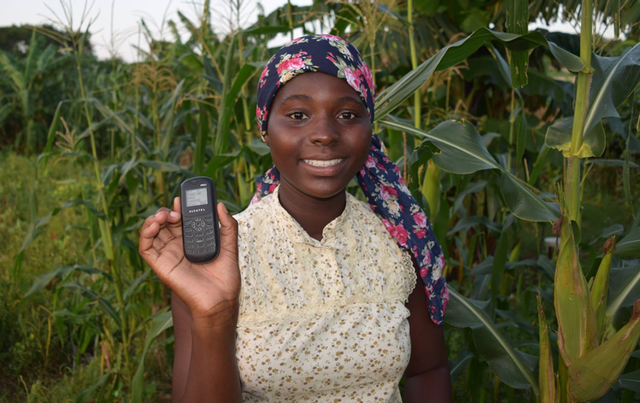
What is e-Agriculture Strategy?
An e-Agriculture strategy is using innovative digital technology solutions like precision agriculture, drones, big data, predictive analytics, and blockchain to improve social and economic outcomes for smallholder farmers.
e-Agriculture programs aim to increase food security by helping smallholder farmers improve modern ICT4Ag farming methods and access to markets. Agricultural ICT4D strategies encompass the full agricultural value chain and includes adjacent technologies like digital financial services and geographic information systems.
Communication in Agriculture
Smallholder farmers have limited knowledge, services, and technologies available to them. They typically need support to adopt modern farming methodologies.
Agriculture technology solutions focus on extension services for farmers to adopt new technologies and innovation. ICTs can amplify the efforts of the extension agents to help farmers plan what crops to grow, source inputs for crop cultivation, and selling their produce in local market.
Chatbots offer an exciting opportunity for governments to engage farmers on the social media platforms where farmers already congregate. For example:
- Facebook chatbots are a popular way to answer basic questions or help farmers apply for government support services.
- SMS text message chatbots can also help private sector companies develop new business leads and educate extension agents on their services.
ICT communication tools can play a crucial role in supporting farmers to access new inputs, credit, and markets with personalized and customized services.
Examples of e-Agriculture Programs
The potential to achieve high impact at the farm-level requires appropriate technology and adoption methodologies. International development organizations can use e-Agriculture communication programs like those below to support ICTforAg value chain ecosystems in developing countries.
Published on: Jul 10 2017 by Guest Writer - Comments Off on 4 Best Practices for Responsible Data in Agriculture
The agriculture sector is creating increasing amounts of data, from many different sources. From tractors equipped with GPS tracking, to open data released by government...
Farm Radio International’s Listening Post is a methodology for collecting real-time, unfiltered feedback from farmers through a multi-channel platform linked...
Recently, I watched in amazement as a group of agriculture extension agents wrestled with an inkjet printer in a rural Philippine rice field.
First they ran a power...
Published on: Jun 14 2017 by Guest Writer - Comments Off on Opportunities and Challenges for Data-Driven Agricultural Innovation
Opportunities and challenges relevant to smallholder agriculture in emerging economies are increasing thanks to the continued proliferation of smartphones, sensors,...
In February CRS, in collaboration with NetHope, flew a drone, or Unmanned Aerial Vehicle (UAV), over cashew farms in central Benin. Just from a first look at the...
You’ve done your user-centered design, you’ve assessed your constituents, and you’ve determined that an Android application is the best way to...
You’ve probably taken an Uber, Lyft, or Grab Taxi. You may have used AirBnb. You could’ve even used Task Rabbit. I know I have. I’ve taken Uber...
About six years ago, I was in Uganda as part of a team undertaking an agriculture policy assessment. One of the more interesting sound bites regarding agriculture...
When we advocate for investments in new digital development solutions, we often make the case for them to be dead simple to use, expecting our constituents to be...
Published on: May 11 2017 by Wayan Vota - Comments Off on Please Register Now: ICTforAg 2017 is Just 6 Weeks Away
Please register to attend ICTforAg 2017 on June 23rd, at FHI 360 in Washington, DC.
This one-day conference will build on ICTforAg 2015 and 2016, bringing together...












